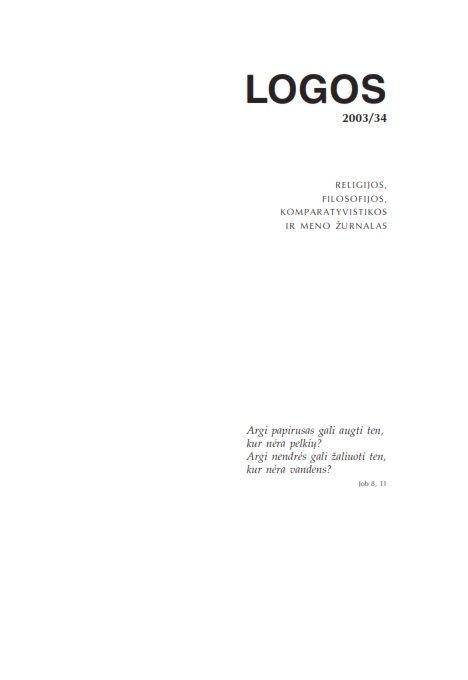Šešių paskutiniųjų Aristotelio kategorijų aiškinimas scholastinėje logikoje Lietuvoje XVI a. antrojoje pusėje
The Interpretation of Six Ultimate Predicaments in Scholastic Logic in Lithuania in the Second Half of the 16th Century
Author(s): Vytis ValatkaSubject(s): Epistemology, Logic, Early Modern Philosophy, Analytic Philosophy
Published by: Visuomeninė organizacija »LOGOS«
Keywords: Action; passion; time; place; position; state; or habitus; intrinsic and extrinsic forms of subject;
Summary/Abstract: In the interpretation of the status of Aristotelian predicaments, or categories, representatives of scholastic logic in Lithuania in the second half of the 16th century Marcin Smiglecki and Diego Ortiz held a thomistic-scotistic position. That is, these scholiasts maintained that categories are real entities (entia realia) as the most general genders of really existing things. Meanwhile, Pedro Viana, a contemporary of the abovementioned logicians, stuck to a porphyrian view. Such a view regarded predicaments as mere constructs of the human intellect (entia rationis) - instruments of cognition necessary for the achievement of scientific knowledge. Within the frames of scholastic tradition, the above-mentioned authors affirmed that the ultimate six predicaments (action, passion, time, place, position and state, or habitus) differ from the first four categories not essentially but modally. Namely, the first four predicaments are intrinsic forms of individual substances. Meanwhile, the ultimate predicaments determine and denominate individuals extrinsically (extrinsece). In an explanation of the status of ultimate predicaments Smiglecki in turn followed a scotistic position. This logician considered the above-mentioned categories extrinsic relations of individual things. Ortiz held a thomistic view that all these categories are not relative but absolute external forms of individuals. Action and passion were extrinsic qualities; time, place and position were interpreted as external quantities. Finally, state acquired the status of an external substance.
Journal: LOGOS - A Journal of Religion, Philosophy, Comparative Cultural Studies and Art
- Issue Year: 2003
- Issue No: 34
- Page Range: 20-29
- Page Count: 10
- Language: Lithuanian

